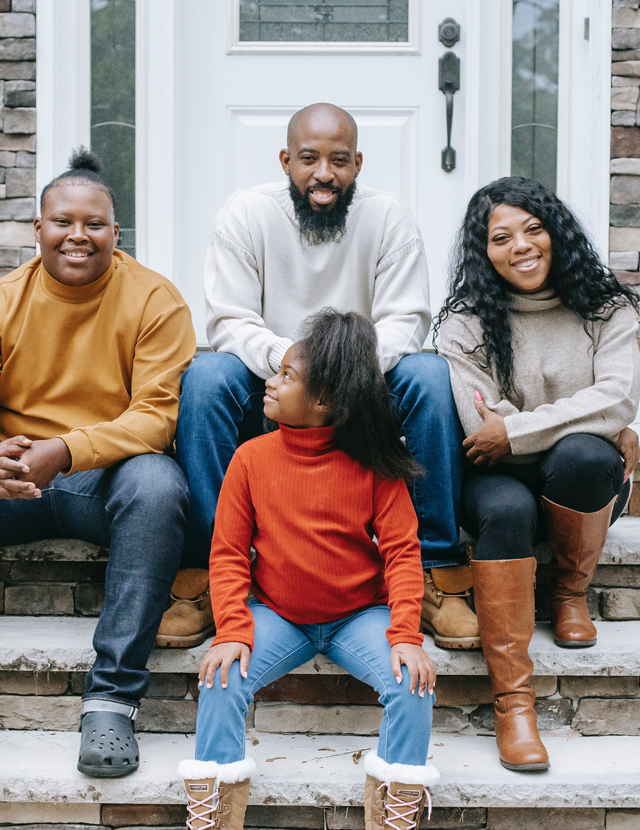Preparing Advocates With Research-Based Strategies to Advance Housing Justice and Health Equity
Program
Highlights

In 2022, PHI’s Berkeley Media Studies Group released findings on the intersection of health equity and housing. They joined with housing advocates at the grassroots level, health equity advocates, CBOs and government staff to discuss findings/recommendations that advance health equity and housing justice.
-
Focus Areas
Healthy Communities -
Expertise
Media Advocacy & Communications
Housing is a determinant of health, and the lack of affordable, safe and stable housing can contribute to negative health outcomes such as chronic disease and injury. Years of discriminatory practices and unjust housing policies are causing limited access to housing for many community members across California and the United States. Factors such as racism, immigration status, disability status, income-level, gender, and sexuality—also known as systemic barriers, are what is driving health and housing inequities.
To understand these issues further, the Public Health Institute’s Berkeley Media Studies Group (BMSG) conducted an ethnographic content analysis of news about housing and health equity, from media markets across the country. The research project grew out of the Kresge Foundation’s Advancing Health Equity Through Housing Initiative, which seeks to identify community-driven practices that connect housing and health sectors and recognize multi sector partnerships which preserve and increase the supply of stable housing to improve the health and well-being of families and communities around the country.
Understanding how journalists currently frame housing, and how those choices shape long-term narratives, can help housing and health advocates be strategic about their communication strategies.
BMSG shared their findings in a report, along with messaging/framing recommendations for housing advocates, health equity advocates and journalists.
Here are some of the key findings:
- During the first year of the COVID-19 pandemic, coverage explicitly connected housing to COVID-19.
- Most articles discussed the impact of the pandemic on existing disparities or called for changes to address housing instability as a way of preventing the spread of the virus and supporting vulnerable communities in their efforts to recover from the pandemic.
- Few stories connected housing to any other health outcome besides COVID.
- Various characters, or sources, appeared in housing news against the backdrop of the pandemic, including landlords, tenants, unhoused people, and housing advocates. Many of these figures were framed in conflict with one another.
- Unhoused people were regularly quoted in the coverage, but most often only to share graphic details of their lived experience on the streets; rarely were they called upon to share their expertise about the housing crisis, or to advocate for solutions.
- Government officials were also prominent figures in the coverage and were often called upon to address housing issues and rectify inequities.
- When racial justice and the relationship to housing and health equity were covered, reporters focused on disparate impacts or troubling data points, rather than describing solutions or quoting sources who could describe their vision for what housing and health could look like in their communities.
Recommendations from the report included:
- Bring racial equity into the frame. Frame racial equity as part of the solution, not just the problem. Uplift Black, Indigenous, and People of Color (BIPOC) as leaders and experts.
- Connect housing to health in the context of COVID—and beyond. Illustrate that long before COVID, decades of problematic housing policies exacerbated health disparities. Demonstrate the connections among equity, housing, and health.
- Position the story “characters” to broaden the frame about housing. Cultivate messengers across diverse sectors. Cultivate messengers across diverse communities. Prepare messengers to be clear and effective in high-stakes situations with reporters.
- Expand the frame around the role of government. Be specific about which government actors and agencies must act—and what they should do. Hold government accountable for racial equity in housing solutions, even when it’s difficult. Tie housing solutions to your long-term vision for change.
- Recommendations for journalists:
- Avoid using language that personifies the housing market.
- Expand who is considered an expert source.
- Address the long-term impact of immediate policy actions.
Since the report was published in July 2022, BMSG had more than 1,000 unique views of the publication online, with the average reader spending over 5 minutes on the page. Read a summary of the report.
BMSG also held a webinar with Housing Now! California to discuss the differences between media advocacy and social marketing, BMSG research on how housing and homelessness are portrayed in the news, and challenges in the dual framing of government as both the problem and part of the solution. Nearly 150 participants attended the webinar, representing diverse geographic areas and a strong representation among community organizations, government, and advocates. Many of BMSG’s followers on Twitter shared the event, including some reporters. Listen to the full webinar recording:
About the Berkeley Media Studies Group (BMSG)
BMSG is a program of the Public Health Institute and is dedicated to expanding advocates’ ability to improve the systems and structures that determine health and accelerate movement toward racial and health equity. BMSG has extensive experience in research, training, and technical assistance related to communicating about challenging social, political, and economic issues that shape health. Visit their website.
Work With Us
You change the world. We do the rest. Explore fiscal sponsorship at PHI.
Support Us
Together, we can accelerate our response to public health’s most critical issues.
Find Employment
Begin your career at the Public Health Institute.
